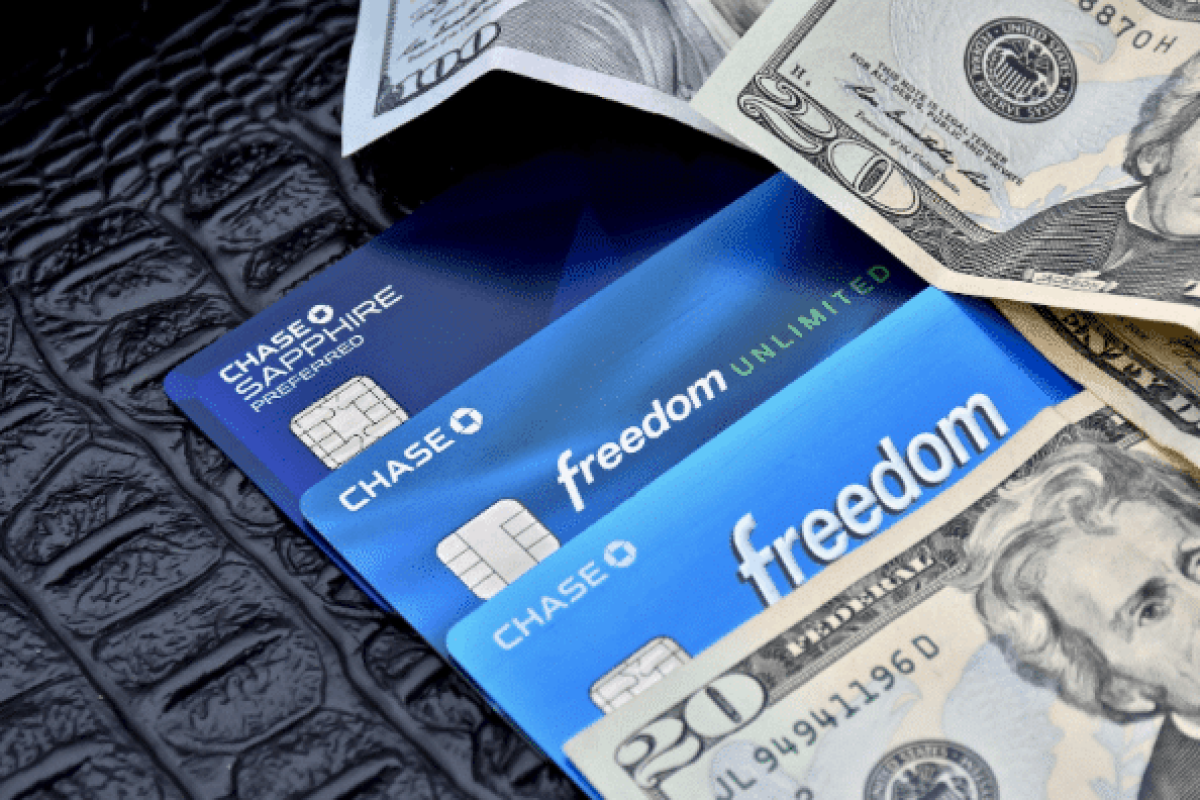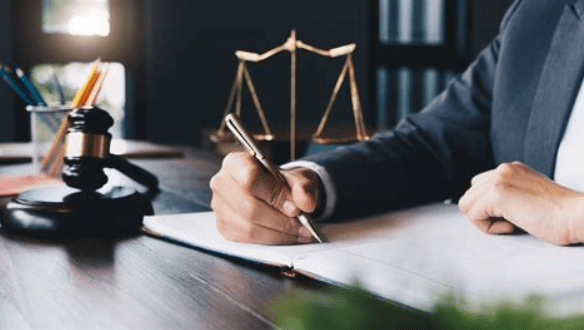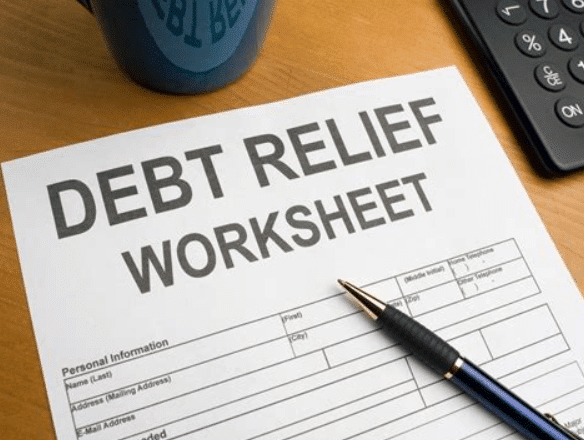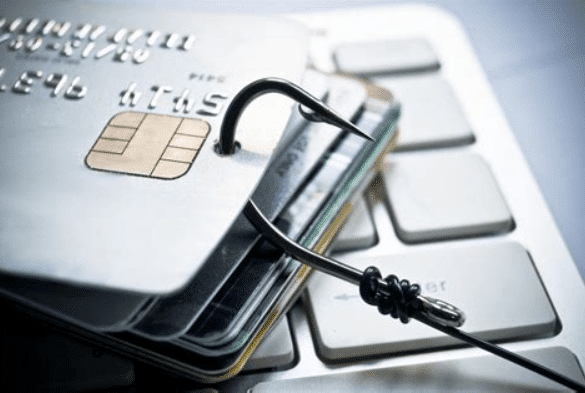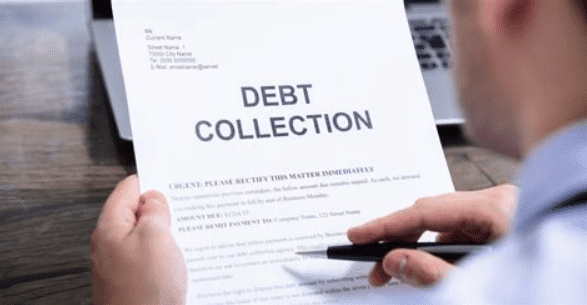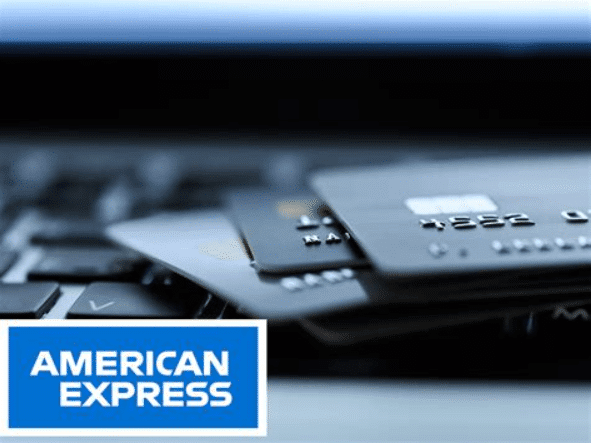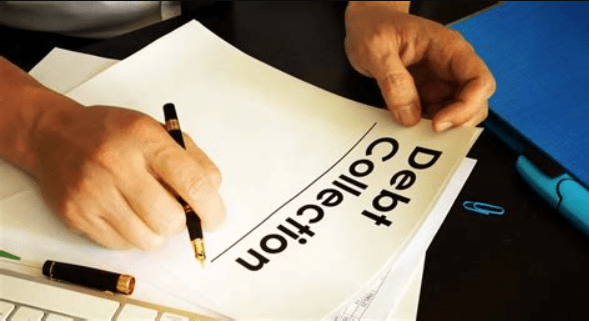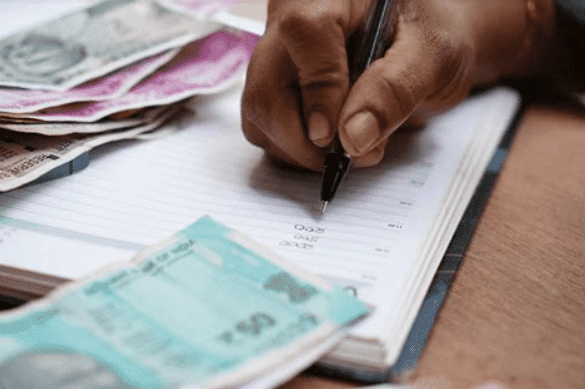Chase Bank has gained notoriety for initiating legal action against customers who have defaulted on their payments. This practice of pursuing credit card debt through lawsuits is prevalent within the company. The approach taken by Chase in these legal proceedings has raised questions regarding its propriety.
In contrast to the common practice among credit card companies and banks of selling delinquent accounts to debt collection agencies, Chase Bank often retains ownership of its debt accounts and pursues legal action independently. This typically involves the initiation of collection lawsuits.
In these legal actions, Chase Bank typically presents witness testimony to substantiate its claims, often in the form of a “business record affidavit.” It is crucial for individuals served with legal notices from Chase to comprehend the operational methods of the company and its collection department, as this understanding can significantly enhance their prospects of prevailing in court.
To address these legal challenges effectively, consider engaging the services of ZumaZip.com, which specializes in assisting individuals in responding to such lawsuits.
What is Chase Bank?
Chase Bank is an American financial institution that provides a variety of financial services, including personal banking, credit cards, mortgages, auto financing, investment advice, small business loans and payment processing.
Chase is the U.S. consumer and commercial banking business of JPMorgan Chase & Co. (NYSE: JPM), a leading global financial services firm with $2.6 trillion in assets and operations worldwide. So, if you’re being sued by Chase for credit card debt, you’ll most likely receive a Summons and Complaint in the mail from JPMorgan Chase.
If you need to contact Chase, here is the company’s contact information:
JPMorgan Chase Headquarters
270 Park Avenue, New York, NY.
Chase Card Customer Service: 1-800-432-3117
Chase General Customer Service: 1-800-935-9935
Does Chase Bank sue for credit card debt?
JPMorgan Chase has garnered a reputation for initiating legal actions against customers who have defaulted on their payments. This practice of pursuing credit card debt through lawsuits is prevalent within the company and has raised concerns regarding its methodology.
Notably, JPMorgan Chase recently faced legal action from the state of California for engaging in robo-signing of contracts on behalf of consumers, inaccuracies in calculating owed amounts, and improper service of court documents to consumers during litigation. These issues have contributed to negative consumer reviews and numerous complaints against the bank.
JPMorgan Chase has a bad reputation
If you feel like you’ve been treated unfairly by Chase, you’re not alone.
As of 2022, the Better Business Bureau has received nearly 4,200 complaints against JPMorgan Chase in a short, three-year period. Even worse, the Consumer Financial Protection Bureau reported almost 29,000 complaints against JPMorgan Chase in the past ten years.
The number one issue reported by consumers is fraudulent charges to their accounts and Chase failing to provide assistance upon request.
Let’s take a look at an example.
Example: Bobby is being sued by Chase for a credit card debt. He never receives the court documents, and he finds out he has lost the case by default. Bobby does some research and finds out that Chase is often guilty of sewer service, or failing to serve people with court documents and filing a false certification of service with the court. Bobby suspects this has happened to him, so he reaches out to ZumaZip and files a Motion to Dismiss Default Judgment along with an Answer where he uses improper service as one of his affirmative defenses. ZumaZip helps him file the documents, and the judgment against Bobby gets canceled, giving him another chance to fight back against the Chase credit card lawsuit.
What to do when you’re sued by Chase Bank collections
In instances where individuals are sued by JPMorgan Chase, they should expect to receive a court Summons and Complaint via mail. However, it’s important to note that receipt of these documents isn’t always guaranteed, as JPMorgan Chase has been known to omit sending court notices and subsequently file false affidavits, asserting proper service.
Upon receipt of the court documents, the initial step towards contesting JPMorgan Chase in court is to respond to the Summons and Complaint by submitting a written Answer. Failure to respond within the designated deadline set by the state could result in a default judgment being issued against the individual.
Respond to a debt lawsuit in minutes with ZumaZip.
Avoid a Default Judgment
In the event of a default judgment, individuals are compelled to settle the debt in its entirety. Such judgments empower Chase to garnish wages and seize property as means to collect the purported owed amount.
Default judgments are prevalent, primarily because many consumers fail to respond to Chase credit card lawsuits, often due to a lack of understanding of the process. However, by initiating a response to the lawsuit, individuals stand a better chance of challenging the claims or negotiating a settlement for an amount less than the original debt.
Aim for a dismissal with a strong defense
If you respond with a strong case, then you have the opportunity of having your case dismissed altogether. This depends on your situation. But there are a few main claims you can make to help sway the judge in your favor.
Reliable defenses to a debt collection lawsuit might include:
- Proof that you do not owe the money and you are a victim of identity theft.
- You were not 18 years old when you acquired the debt.
- The statute of limitations has been reached.
- You have filed for bankruptcy.
- The bill has already been paid.
- The creditor is trying to collect more than you legally owe.
- The creditor cannot show proof of the debt.
- You were unfairly tricked into agreeing to the debt.
Make the right defense the right way with ZumaZip.
Reach a Chase credit card debt settlement
When faced with credit card debt owed to Chase, individuals have the option to initiate negotiations for a debt settlement. In this process, it is essential to transparently convey one’s financial situation and propose the highest amount feasible for repayment within their circumstances. Chase may consider accepting such offers.
ZumaZip Settle simplifies the commencement of the settlement negotiation process. Achieving a settlement can alleviate the risk of wage garnishment and alleviate pressure from Chase debt collectors. Moreover, individuals may have the opportunity to reduce the debt by settling for an amount lower than the original owed sum, potentially resulting in significant savings.
File a counterclaim in court against Chase Bank
In the event of a lawsuit initiated by Chase Bank, individuals have the option, after exhausting defense strategies, to file a counterclaim as a final recourse. This entails suing the creditor subsequent to their initial lawsuit against you. Counterclaims typically involve demonstrating instances where the creditor or collection agency engaged in unlawful practices during debt collection, such as imposing illegal fees.
Should the matter proceed to trial, individuals are obligated to substantiate their counterclaims. Given Chase Bank’s propensity for handling debt collection internally, prevailing in court can present challenges. Therefore, it is imperative for individuals to be well-informed about their rights, as this knowledge constitutes the most effective means of securing a favorable outcome.
What happens after a judgment?
If Chase pursues you and a judgment is placed against you, then a few major consequences may occur.
- Freezing of assets: When this occurs your bank account is frozen. It can then be essentially emptied by judgment creditors until they receive their money back for your debt.
- Wage garnishment: Creditors can take a percentage of each paycheck you receive to pay back the debt you owe.
- Judgment lien: If you own a home, then a judgment can put a cloud on the title of your property. You could lose your home by having it sold at an auction to satisfy your debt.
- Negative impact on your credit report: The judgment will be published in your credit report for up to seven years on the public record. This can decrease your credit score and make it difficult to obtain loans, and rent a property.
Protect your assets by responding to Chase with ZumaZip.com.
This is why it’s so important to at least respond to a Chase Bank lawsuit. If you don’t, you automatically give Chase the victory. You can actually increase your chances of winning by 7x when you respond to your debt collection lawsuit with ZumaZip.
Follow these steps to Answer a Chase credit card lawsuit
In a Chase credit card lawsuit, Chase is called the plaintiff, and you are the defendant. Once the lawsuit is filed and put before the court, you will not be able to respond by phone or a letter. Instead, you need to file a written, legal Answer. Here are 6 tips for drafting an Answer that will help you win your case:
- You don’t need to give a detailed answer: The Answer is a brief document. It isn’t the place to tell your life story or give your entire defense. Be as straight to the point as you can be.
- Never admit debt liability: The complaints document comes with numbered paragraphs. Respond to every paragraph. You have three options: deny, admit, or deny for lack of knowledge. As a rule of thumb, lawyers advise you to deny, deny, deny. Let the plaintiff prove your responsibility for the debt.
- Include your affirmative defenses: These are reasons why you think the plaintiff is wrong to sue you. Assert your affirmative defenses for each paragraph. You don’t make these up; there are options. For example, you don’t owe the debt, you already paid part of it, the statute of limitations has expired, or you need the plaintiff to provide proof.
- Use standard formatting or “style: Court documents need to be formatted in a certain way. For instance, an answer will include the defendant’s (your) name, physical and email address, name of the court, the identity of the plaintiff, case title, and case serial number. The spacing and page format should also follow an acceptable style for the answer to be considered professional. If you’re having trouble, you can use ZumaZip’s template.
- Include the certificate of service: A brief document containing the name of the court, the name of the plaintiff, and the date you’re sending it. If the plaintiff has an attorney, you should serve the attorney and not the company.
- Make sure you sign the document: The document is null and void if you don’t sign it. A signature means that you accept the document as true, or you have reason to believe that everything you filled in is accurate. You may print and sign manually or sign it electronically before you mail the letter.
ZumaZip can help you draft and file your Answer in all 50 states.
Once you’ve completed these steps, make sure to file the official Answer with the clerk of court and send a copy to the plaintiff. You should make two copies of the answer, one to mail to the court and the other to the creditor suing you. Use certified mail so that you are notified when both parties receive their mail.
What is ZumaZip?
ZumaZip is a convenient solution designed to streamline your response to a debt collection lawsuit. Here’s a breakdown of what you can expect when you use ZumaZip:
Firstly, you’ll access our user-friendly web application, which guides you through the process step by step. You’ll be prompted to answer a series of questions related to your specific situation. Once you’ve completed the questionnaire, you have the option to either print out the finalized forms and mail them to the appropriate courts yourself, or you can opt to utilize ZumaZip’s services to file them on your behalf. Additionally, if you choose this option, an attorney will review your document for added peace of mind.
If you’re seeking guidance on how to effectively respond to a debt collection lawsuit, ZumaZip can provide the assistance you need. Feel free to explore our FAQs for more information on what ZumaZip has to offer.
What if I haven’t been sued yet?
If you’ve only received a collections notice, but not a lawsuit, the best way to respond is with a Debt Validation Letter. When a debt collector contacts you in any way, whether it’s by phone or mail, you can respond by formally requesting a debt validation with a Debt Validation Letter . This letter notifies the collector that you dispute the debt and forces them to provide proof you owe the debt. They can’t call you or continue collecting until they provide validation of the debt. This flowchart shows how you can use a Debt Validation Letter to win.
Get started with a Debt Validation Letter here.
How to Answer a Summons for debt collection in all 50 states
Here’s a list of guides on how to respond to a debt collection lawsuit in each state:
- Alabama
- Alaska
- Arizona
- Arkansas
- California
- Colorado
- Connecticut
- Delaware
- Florida
- Georgia
- Hawaii
- Idaho
- Illinois
- Indiana
- Iowa
- Kansas
- Kentucky
- Louisiana
- Maine
- Maryland
- Massachusetts
- Michigan
- Minnesota
- Mississippi
- Missouri
- Montana
- Nebraska
- Nevada
- New Hampshire
- New Jersey
- New Mexico
- New York
- North Carolina
- North Dakota
- Ohio
- Oklahoma
- Oregon
- Pennsylvania
- Rhode Island
- South Carolina
- South Dakota
- Tennessee
- Texas
- Utah
- Vermont; Vermont (Small Claims court)
- Virginia
- Washington
- West Virginia
- Wisconsin
- Wyoming
Guides on how to beat every debt collector
Hey there! Facing off against a debt collector can feel like a daunting challenge, but fear not! We’re here to help you navigate through it all with our handy guides designed to assist you in beating every debt collector you encounter. Whether you’re facing a new lawsuit or dealing with a persistent collector, we’ve got your back. Stay positive, stay informed, and let’s tackle this together!
- Absolute Resolutions Investments LLC
- Accredited Collection Services
- Alliance One
- Amcol Clmbia
- American Recovery Service
- Asset Acceptance LLC
- Asset Recovery Solutions
- Associated Credit Services
- Autovest LLC
- Cach LLC
- Cavalry SPV I LLC
- Cerastes LLC
- Colinfobur
- Covington Credit
- Crown Asset Management
- CTC Debt Collector
- Cypress Financial Recoveries
- Delanor Kemper & Associates
- Eagle Loan of Ohio
- Educap
- Estate Information Services
- FIA Card Services
- Forster & Garbus
- Freshview Solutions
- Fulton Friedman & Gullace LLP
- Harvest Credit Management
- Howard Lee Schiff
- Hudson & Keyse LLC
- Integras Capital Recovery LLC
- Javitch Block
- Jefferson Capital Systems LLC
- LVNV Funding
- Mannbracken
- Mariner Finance
- Medicredit
- Michael J Adams PC
- Michael J Scott
- Midland Funding LLC
- Mullooly, Jeffrey, Rooney & Flynn
- Mountain Land Collections
- MRS Associates
- National Collegiate Trust
- Nationstar Foreclosure
- Northstar Capital Acquisition
- NCEP LLC
- NRC Collection Agency
- OneMain Financial
- Palisades Collection LLC
- Pallida LLC
- Paragon Revenue Group
- Pinnacle Collections Agency
- PMAB LLC
- Portfolio Recovery Associates
- Provest Law
- PYOD LLC
- Reunion Student Loan Finance Corporation
- Revenue Group
- Regents and Associates
- RSIEH
- Salander Enterprises LLC
- Second Round Sub LLC
- Security Credit Services
- Sherman Financial Group
- Suttell and Hammer
- T-Mobile
- Transworld Systems
- Tulsa Teachers Credit Union
- UCB Collection
- Velo Law Office
- Velocity Investments
- Waypoint Resource Group
- Weinberg and Associates
- Wolpoff & Abramson
Settle your medical debt
Having a health challenge is stressful, but dealing medical debt on top of it is overwhelming. Here are some resources on how to manage medical debt.
- Am I Responsible for My Spouse’s Medical Debt?
- Do I Need a Lawyer for Medical Bills?
- Do I Need a Lawyer to Fight Medical Bill Debt?
- Does Bankruptcy Clear Medical Debt?
- How Much Do Collection Agencies Pay for Medical Debt?
- How to Find Medical Debt Forgiveness Programs
- Is There a Statute of Limitations on Medical Bills?
- Medical Debt Statute of Limitations by State
- Summoned to Court for Medical Bills — What Do I Do?
- Summoned to Court for Medical Bills? What to Do Next
Stop calls from Debt Collectors
Do you keep getting calls from an unknown number, only to realize that it’s a debt collector on the other line? If you’ve been called by any of the following numbers, chances are you have collectors coming after you, and we’ll tell you how to stop them.
- 800-390-7584
- 800-289-8004
- 800-955-6600
- 877-366-0169
- 877-591-0747
- 800-278-2420
- 800-604-0064
- 800-846-6406
- 877-317-0948
- 888-899-4332
- 888-912-7925
- 202-367-9070
- 502-267-7522
Other wage garnishment resources
- Bank Account Garnishment and Liens in Texas
- Can I Stop Wage Garnishment?
- Can My Wife’s Bank Account Be Garnished for My Debt?
- Can Payday Loans Garnish Your Wages?
- Can pensions be garnished?
- Can Private Disability Payments Be Garnished?
- Can Social Security Disability Be Garnished?
- Can They Garnish Your Wages for Credit Card Debt?
- Can You Stop a Garnishment Once It Starts?
- Guide to Garnishment Limits by State
- How Can I Stop Wage Garnishments Immediately?
- How Long Before a Creditor Can Garnish Wages?
- How Long Does It Take to Get Garnished Wages Back?
- How to Fight a Wage Garnishment
- How to Prevent Wage Garnishment
- How to Stop a Garnishment
- How to Stop Social Security Wage Garnishment
- How to Stop Wage Garnishment — Everything You Need to Know
- New York Garnishment Laws – Overview
- Ohio Garnishment Laws — What They Say
- Wage Garnishment Lawyer
- What Is Wage Garnishment?
Guides on Arbitration
If the thought of going to court stresses you out, you’re not alone. Many Americans who are sued for credit card debt utilize a Motion to Compel Arbitration to push their case out of court and into arbitration.
Below are some resources on how to use an arbitration clause to your advantage and win a debt lawsuit.
- How Arbitration Works
- How to Find an Arbitration Clause in Your Credit Agreement
- How to Make a Motion to Compel Arbitration
- How to Make a Motion to Compel Arbitration in Florida
- How to Make a Motion to Compel Arbitration Without an Attorney
- How Credit Card Arbitration Works
- Motion to Compel Arbitration in California
- Sample Motion to Compel Arbitration
Federal Debt Collection Laws Can Protect You
Knowing your rights makes it easier to stand up for your rights. Below, we’ve compiled all our articles on federal debt collection laws that protect you from unfair practices.
- 15 USC 1692 Explained
- Does the Fair Credit Reporting Act Work in Florida?
- FDCPA Violations List
- How to File an FDCPA Complaint Against Your Debt Collector (Ultimate Guide)
- How to Make a Fair Debt Collection Practices Act Demand Letter
- How to Submit a Transunion Dispute
- How to Submit an Equifax Dispute
- How to Submit an Experian Dispute
- What Debt Collectors Cannot Do — FDCPA Explained
- What Does Account Information Disputed by Consumer Meets FCRA Requirements Mean?
- What does “meets FCRA requirements” mean?
- What does FCRA stand for?
- What is the Consumer Credit Protection Act
Resolve Your Debt with Your Creditor
Some creditors, banks, and lenders have an internal collections department. If they come after you for a debt, ZumaZip can still help you respond and resolve the debt. Here’s a list of guides on how to resolve debt with different creditors.
- American Express; American Express – Debt Collection
- Bank of America
- Barclay
- Best Buy Credit Card
- Capital One
- Chase
- Credit One Bank
- Old Navy Credit Card
- PayPal Synchrony Card
- Regional Finance
- Retailers National Bank
- Reunion Student Loan Finance Corporation
- SYNCB/PPEXTR
- Synchrony Bank
- Synchrony Walmart Card
- Target National Bank
- Webbank
- Wells Fargo
- Can I Pay My Original Creditor Instead of a Debt Collection Agency?
- Can I Settle a Debt with the Original Creditor?
Check the Status of Your Court Case
Don’t have time to go to your local courthouse to check the status of your case? We’ve created a guide on how to check the status of your case in every state, complete with online search tools and court directories.
- Alabama Court Case Search—Find Your Lawsuit
- Alaska Court Case Search — Find Your Lawsuit
- Arizona Court Case Search – Find Your Lawsuit
- Arkansas Court Case Search — Find Your Lawsuit
- California Court Case Search- Find Your Lawsuit
- Colorado Court Case Search — Find Your Lawsuit
- Connecticut Case Lookup — Find Your Court Case
- Delaware Court Case Search — Find Your Lawsuit
- Florida Court Case Search — Find Your Lawsuit
- Georgia Court Case Search — Find Your Lawsuit
- Hawaii Court Case Search — Find Your Lawsuit
- Idaho Court Case Search – Find Your Lawsuit
- Illinois Court Case Search — Find Your Lawsuit
- Indiana Court Case Search — Find Your Lawsuit
- Iowa Court Case Search — Find Your Lawsuit
- Kansas Court Case Search — Find Your Lawsuit
- Kentucky Court Case Search — Find Your Lawsuit
- Louisiana Court Case Search — Find Your Lawsuit
- Maine Court Case Search — Find Your Lawsuit
- Maryland Court Case Search — Find Your Lawsuit
- Massachusetts Court Case Search — Find Your Lawsuit
- Michigan Court Case Search — Find Your Lawsuit
- Minnesota Court Case Search — Find Your Lawsuit
- Mississippi Court Case Search — Find Your Lawsuit
- Missouri Court Case Search — Find Your Lawsuit
- Montana Court Case Search — Find Your Lawsuit
- Nebraska Court Case Search — Find Your Lawsuit
- Nevada Court Case Search — Find Your Lawsuit
- New Hampshire Court Case Search — Find Your Lawsuit
- New Jersey Court Case Search—Find Your Lawsuit
- New Mexico Court Case Search – Find Your Lawsuit
- New York Case Search — Find Your Lawsuit
- North Carolina Court Case Search — Find Your Lawsuit
- North Dakota Court Case Search — Find Your Lawsuit
- Ohio Court Case Search — Find Your Lawsuit
- Oklahoma Court Case Search — Find Your Lawsuit
- Oregon Court Case Search — Find Your Lawsuit
- Pennsylvania Court Case Search — Find Your Lawsuit
- Rhode Island Court Case Search — Find Your Lawsuit
- South Carolina Court Case Search — Find Your Lawsuit
- South Dakota Court Case Search — Find Your Lawsuit
- Tennessee Court Case Search — Find Your Lawsuit
- Texas Court Case Search — Find Your Lawsuit
- Utah Court Case Search — Find Your Lawsuit
- Vermont Court Case Search — Find Your Lawsuit
- Virginia Court Case Search — Find Your Lawsuit
- Washington Court Case Search — Find Your Lawsuit
- West Virginia Court Case Search — Find Your Lawsuit
- Wisconsin Court Case Search — Find Your Lawsuit
- Wyoming Court Case Search — Find Your Lawsuit

